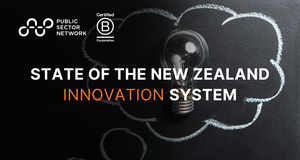Building Future-Ready Governments: Transformational Lessons Learned from a Global Shock
How was it possible for governments to transform during the COVID-19 pandemic and get ready for future shock events?

From late 2019 until 2023, the COVID-19 pandemic was an extraordinary stress test for governments and economies around the world. It revealed the strengths and weaknesses of organizational crisis response and resilience in ways that will be studied for years to come.
Through the innovation and investment spurred on by the pandemic, governments entered an era of growth in functional capabilities and organizational transformation. Accomplishments made by governments during the crisis were recognized and appreciated by many citizens.
At the same time, the pandemic also revealed gaps in emergency preparedness and challenges faced by government agencies working across civil society and jurisdictional boundaries. It pointed out the need for better capacities to anticipate risk, more systematic threat horizon scanning, better data management for monitoring public health indicators and other critical infrastructure metrics, and more expertise within governments to review data and support decision-making.
In the aftermath of the pandemic, many governments recognize that, despite progress made in key domain areas, they are not as prepared for the next round of future shocks as they would like to be. To find out what these leaders are doing to improve resilience and readiness, the IBM Institute for Business Value (IBM IBV) conducted a survey of global government leaders focusing on the actions and investments they made to improve resilience, as well as their mindsets and attitudes toward organizational transformation.
- Communities
- Data, Analytics and AI
- Digital Services and Customer Experience
- IT Modernization and Cloud
- Region
-
Canada
Published by

Most Popular


















